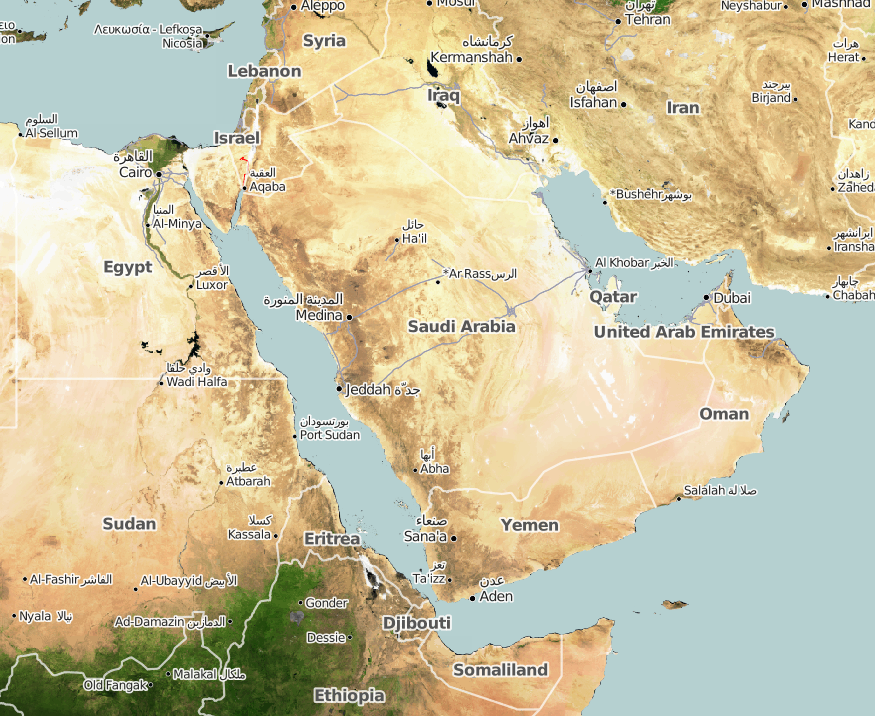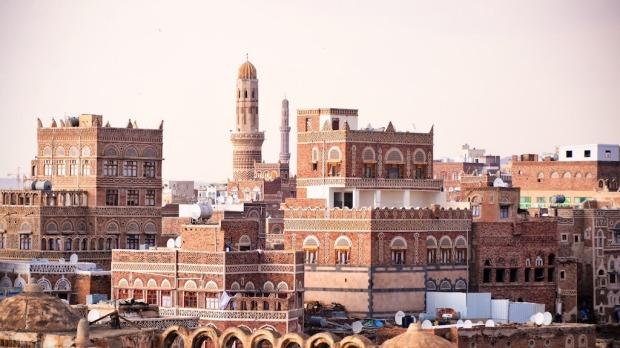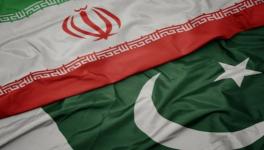Yemen: Beginning of the End of the Saudi Monarchy?
West Asian politics is becoming more and more like a kaleidoscope, where each shake rearranges to a completely new scenario. The most important development is the Houthis, the new power in Yemen, moving towards capturing the southern port city of Aden. The Saudi backed President Mansour Hadi, has fled the country. The Saudis, along with other Gulf monarchies and Egypt, have now declared a war on the Houthis in support of Hadi and launched airstrikes against them. It remains to be seen whether they will follow it up with a land invasion of Yemen. If they do, it could mean a costly land war for the Saudis and the beginning of the end of the Saudi monarchy.
The only monarchy in the region to have kept out of the Saudi coalition is Oman, which shares a border with Yemen.

The Houthi offensive that has now reached Aden in the South, after sweeping through the north, has taken almost everybody by surprise. The Houthis are Zaydi Shias and do not have much in common with Iranian Shias. Neither have the Houthis received as much help from the Iranians as is being claimed by the western and Saudi controlled media.
This is the same Houthis who were backed by the Saudis, the UK and the US in the 60's to fight the Yemeni nationalists and Egyptians. The slogan then was for the “Emir and Allah” against the godless communists and Nasserites.
The Houthis fight well; they are from the mountainous region in the North of Yemen that borders South-West Saudi Arabia. Yemen has historical claims on provinces in South West Saudi Arabia. For example, the Saudis had taken the Najran province in 1934 from Yemen on a 20-year lease, which they never returned. Before the emergence of the House of Saud, the rulers of the Najd, it was Yemen that was the dominant power in the Arabian peninsula. Yemen has a long coastline with a number of important ports and was a major coffee exporter. San'a was the location of Pasolini's film version of the Thousand and One Nights (Arabian Nights) and one of the oldest cities in the region. It is the discovery of oil and Saudis control over it, backed by the west that has turned Saudi Arabia into the pre-eminent power in the region and Yemen a poor second cousin.

Old Sana'a by day. Photo: Rod Waddington/Flickr Creative Commons
The Saudis controlled Yemen through oil money and buying off the leaders of various political factions. They had earlier backed Ali Abdullah Saleh, the former President, who ruled Yemen for 34 years. After a popular upsurge against Saleh, it replaced him with Abd-Rabbu Mansour Hadi, the current President, in a stage-managed, single candidate elections in 2012. Though Saleh is a Houthi himself, he fought a 6-year battle against them when he was the President. He has now aligned with the same Houthis, along with units of the army that still owe allegiance to him.
Yemeni population is largely of Zaydi Shias, and the Wahabis hate all Shias as heretics and apostates. This is the core belief that the Wahabi Saudi state shares with IS and al Qaeda – a belief in Wahabi'ism or the aberrant takfiri form (a belief that all others are heretics except themselves) of Islam. It is not surprising that beheading is the common punishment practiced by the Saudis as well as the IS. It is this virulent takfiri brand of Islam, backed by Saudi money that is slowly replacing the far more inclusive Islam practised in different parts of the world.

A market stall operating in Sana'a. Photo: Rod Waddington/Flickr Creative Commons
The US is supposedly fighting al Qaeda in Yemen. So are the Houthis. The Saudis attack on the Houthis makes clear who they consider their real enemies. The Saudis and the Gulf Monarchies have been the key backers of the al Qaeda and other sectarian groups who have now coalesced as the IS. In Yemen and in Syria, al Qaeda and Saudis are officially on the same side. So is the US. So much for its rhetoric on war against terror.
The chances of bringing back Hadi through aerial bombardment seems unlikely. The ability of the Saudis to put together a puppet regime in Yemen will require a land invasion. Such an invasion would need Pakistan and Egypt to supply the footsoldiers. For the time being, Pakistan has declined to participate in Saudi's Yemeni war. Egypt has committed support, but will still remember their war in Yemen, where they lost more than 25,000 soldiers against the same Houthis.
This is the first time Saudis are directly in a war in this region, instead of only funding one. They have earlier faced an uprising in Najran, the adjoining Saudi province. The South-Western Saudi Arabia including Najran, are largely Shia and have already seen protests following the Arab spring. There is a possibility that the Wahabi kingdom of Najd, which now occupies Mecca, Medina, and parts of Yemen, with its Yemeni overreach, will face something it has not dealt with earlier: a direct land war that could radicalise their army and pose a long-term threat to the monarchy. To play the puppet master is quite different from fighting land wars, that too in foreign soil. This is what the colonial powers discovered earlier and what the Saudi royals may also find out in Yemen
Disclaimer: The views expressed here are the author's personal views, and do not necessarily represent the views of Newsclick
Get the latest reports & analysis with people's perspective on Protests, movements & deep analytical videos, discussions of the current affairs in your Telegram app. Subscribe to NewsClick's Telegram channel & get Real-Time updates on stories, as they get published on our website.
























